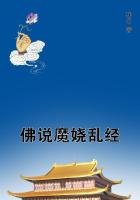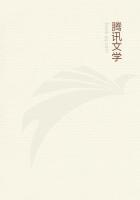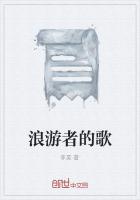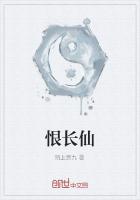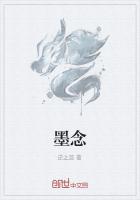Queen Mary had known the decree of the commissioners these two months. The very day it had been pronounced she had learned the news through her chaplain, whom they had allowed her to see this once only. Mary Stuart had taken advantage of this visit to give him three letters she had just written-one for Pope Sixtus V, the other to Don Bernard Mendoza, the third to the Duke of Guise.
Here is that last letter:--
14th December, 1586
"My Good Cousin, whom I hold dearest in the world, I bid you farewell, being prepared to be put to death by an unjust judgment, and to a death such as no one of our race, thanks to God, and never a queen, and still less one of my rank, has ever suffered. But, good cousin, praise the Lord; for I was useless to the cause of God and of His Church in this world, prisoner as I was; while, on the contrary, I hope that my death will bear witness to my constancy in the faith and to my willingness to suffer for the maintenance and the restoration of the Catholic Church in this unfortunate island. And though never has executioner dipped his hand in our blood, have no shame of it, my friend; for the judgment of heretics who have no authority over me, a free queen, is profitable in the sight of God to the children of His Church. If I adhered, moreover, to what they propose to me, I should not suffer this stroke. All of our house have been persecuted by this sect, witness your good father, through whose intercession I hope to be received with mercy by the just judge. I commend to you, then, my poor servants, the discharge of my debts, and the founding of some annual mass for my soul, not at your expense, but that you may make the arrangements, as you will be required when you learn my wishes through my poor and faithful servants, who are about to witness my last tragedy. God prosper you, your wife, children, brothers and cousins, and above all our chief, my good brother and cousin, and all his. The blessing of God and that which I shall give to my children be on yours, whom I do not commend less to God than my own son, unfortunate and ill-treated as he is. You will receive some rings from me, which will remind you to pray God for the soul of your poor cousin, deprived of all help and counsel except that of the Lord, who gives me strength and courage to alone to resist so many wolves howling after me. To God be the glory.
"Believe particularly what will be told you by a person who will give you a ruby ring from me; for I take it on my conscience that the truth will be told you of what I have charged him to tell, and especially in what concerns my poor servants and the share of any. I commend this person to you for his ****** sincerity and honesty, that he may be placed in some good place. I have chosen him as the least partial and as the one who will most simply bring you my commands.
Ignore, I beg you, that he told you anything in particular; for envy might injure him. I have suffered a great deal for two years and more, and have not been able to let you know, for an important reason. God be praised for all, and give you grace to persevere in the service of His Church as long as you live, and never may this honour pass from our race, while so many men and women are ready to shed their blood to maintain the fight for the faith, all other worldly considerations set aside. And as to me, I esteem myself born on both father's and mother's sides, that I should offer up my blood for this cause, and I have no intention of degenerating. Jesus, crucified for us, and all the holy martyrs, make us by their intercession worthy of the voluntary offering we make of our bodies to their glory!
"From Fotheringay, this Thursday, 24th November.
"They have, thinking to degrade me, pulled down my canopy of state, and since then my keeper has come to offer to write to their queen, saying this deed was not done by his order, but by the advice of some of the Council. I have shown them instead of my arms on the said canopy the cross of Our Lord. You will hear all this; they have been more gentle since.--Your affectionate cousin and perfect friend, "MARY, Queen of Scotland, Dowager of France"
>From this day forward, when she learned the sentence delivered by the commissioners, Mary Stuart no longer preserved any hope; for as she knew Elizabeth's pardon was required to save her, she looked upon herself thenceforward as lost, and only concerned herself with preparing to die well. Indeed, as it had happened to her sometimes, from the cold and damp in her prisons, to become crippled for some time in all her limbs, she was afraid of being so when they would come to take her, which would prevent her going resolutely to the scaffold, as she was counting on doing. So, on Saturday the 14th February, she sent for her doctor, Bourgoin, and asked him, moved by a presentiment that her death was at hand, she said, what she must do to prevent the return of the pains which crippled her. He replied that it would be good for her to medicine herself with fresh herbs.
"Go, then," said the queen," and ask Sir Amyas Paulet from me permission to seek them in the fields."
Bourgoin went to Sir Amyas, who, as he himself was troubled with sciatica, should have understood better than anyone the need of the remedies for which the queen asked. But this request, ****** as it was, raised great difficulties. Sir Amyas replied that he could do nothing without referring to his companion, Drury; but that paper and ink might be brought, and that he, Master Bourgoin, could then make a list of the needful plants, which they would try to procure.
Bourgoin answered that he did not know English well enough, and that the village apothecaries did not know enough Latin, for him to risk the queen's life for some error by himself or others. Finally, after a thousand hesitations, Paulet allowed Bourgoin to go out, which he did, accompanied by the apothecary Gorjon; so that the following day the queen was able to begin to doctor herself.

